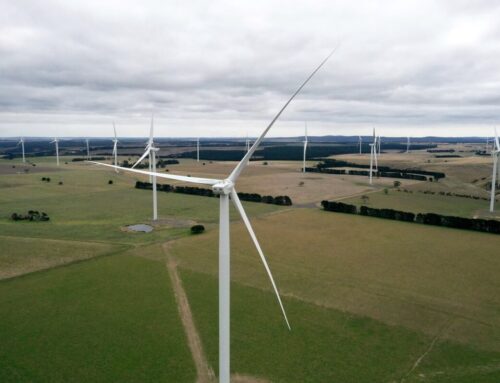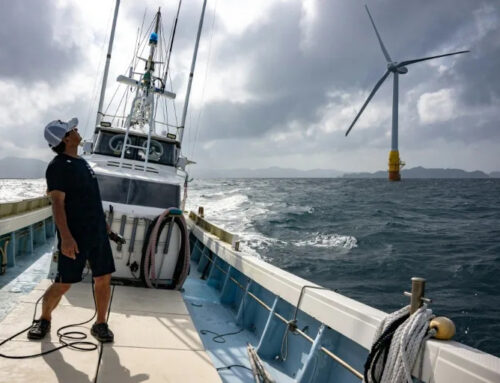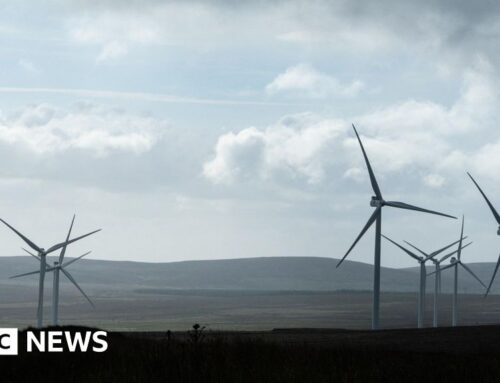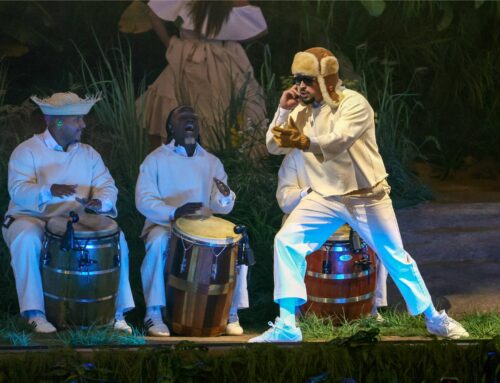Feeling stifled by climate change grief? Try practising the ‘three L’s’
September 20, 2025
What is ‘Solastalgia’ and how are climate-affected communities tackling it?
Man-made climate change, global heating and environmental destruction can be confronting and overwhelming, but you can take action.
The outlook for Australia’s future climate — outlined in this week’s National Climate Risk Assessment — was bleak, even with the most conservative estimates.
The term eco-grief or eco-anxiety is the creeping and insipid feeling of hopelessness about the state of the environment.
Following the First Nations practice of caring for Country could help all Australians deal with the personal and environmental impacts of climate change.
Aboriginal and Torres Strait Islander peoples have been intrinsically connected to — and cared for — the natural environment for millennia.
So, how can you introduce these ideas, principles and practices into your life, no matter where you live?
Connection to country ‘like family’
The National Climate Risk Assessment outlines the impact on Aboriginal and Torres Strait Islander people from a changing climate.
First Nations people’s deep connection to country leaves them more susceptible to emotional harm when that environment changes.
D’harawal man Gregory Andrews, a former Threatened Species Commissioner, now runs an environmental consultancy.
“Ecological grief hits us really hard, deep in our hearts,” he said.
“Our relationship to country really is like family, so when we see it changing from climate change or from habitat degradation, it really hurts deeply.”
Mr Andrews has suffered from mental health conditions in the past.
He says caring for the country on his family’s bush block property was a big part of his recovery.
“The beautiful thing is every time I did it, I went into a deep sense of flow,” Mr Andrews said.
“That feeling and you lose track of time, I found it incredibly healing.”
Mr Andrews and his family worked to remove weeds, plant native species and conduct traditional cool burns.
He says people all over Australia can care for country and feel the same sense of healing he has experienced.
“If you look after country and if you connect to country, then you belong to country.
“And, and when we look after country, it looks after us.”
Landcare, self-care and caring for country
Landcare, self-care, caring for country, and human connection to nature and the natural world have been steadily falling over the last couple of centuries.
It’s well documented that immersing ourselves in nature not only helps our wellbeing but is more likely to inspire us to contribute back to the environment.
Landcare is a not-for-profit community-led organisation that cares for bushland, waterways and coastlines around the country.
It has a long history of taking its cues from First Nations practices and knowledge.
Wally Bell is a Ngunnawal Elder and former board member of Landcare ACT.
“Caring for country is good for everyone’s wellbeing, you’re being social, physical and it benefits the environment,” he said.
“Listening to and caring for country can regenerate the environment, and your wellbeing.”
There are more than 6,000 Landcare groups in communities around Australia, caring for country of all kinds, including hundreds in our capital cities.
Landcare ACT has more than 100 groups in Canberra and has also run nature wellbeing programs for the last several years.
The programs allow people to connect to and care for country with bushwalks, conservation and horticulture.
The University of Canberra found 91per cent of participants felt the programs benefited their mental health.
Landcare is just one of hundreds of environmental, conservation and Indigenous heritage groups.
“If you’re feeling a bit anxious then go to a local park or a quiet place in nature, close your eyes and listen to the country,” said Mr Bell.
“Practice the ‘three Ls’, look, listen, learn; that’s how you can slow down and care for country and yourself.”
Caring for country ‘healing in real-time’
It had been a few years since the Black Summer bushfires — exacerbated by climate change — went through Gamilaraay country in northern New South Wales.
In 2022, the Nucoorilma clan were returning for the first time, to walk among the blackened trees and green shoots of regrowth.
The small family group of Elders, children and grandchildren listen to the Macintyre River and tell each other stories about the country they are walking on.
Gamilaraay Wiradjuri woman Dr Kisani Upward watched the Nucoorilma people reconnect with their lands like a long lost relative.
She was there to apply contemporary science to Indigenous knowledge.
“It was incredibly powerful to see that reconnection and healing in real time,” she said.
“The Elders were showing us where the ochre veins were … and just seeing some of the young ones just lathering themselves for the first time was a life-changing experience.”
Dr Upward has studied First Nations connection to country and the links to mental health, working with the Nucoorilma clan.
This research, cited and described in this week’s governmental climate reports, was into a phenomenon known as Solastalgia — a feeling of loss or homesickness for the natural environment.
“Country is part of us, it is intertwined, interconnected with our minds, our bodies, our souls, our spirit,” she said.
Dr Upward now works as an academic at the University of New England, where she looks at mental health and the environment.
“It’s a reciprocal act of care: caring for country is an act of caring for yourself,” Dr Upward said.
Dr Upward now applies her research on Solastalgia to her own wellbeing.
“It became a practice of when I was feeling overwhelmed and under a lot of stress and pressure, trying to balance that with the natural world.”
“It’s incredibly important to maintain positive social emotional wellbeing, not only for Aboriginal and Torres Strait peoples, [it’s] a practice that can be adopted by everyone.”
Search
RECENT PRESS RELEASES
US says $100,000 fee for H-1B visas will not apply to existing holders
SWI Editorial Staff2025-09-20T20:58:35-07:00September 20, 2025|
Cannabis risk during pregnancy: American College of Obstetricians and Gynecologists’ updat
SWI Editorial Staff2025-09-20T20:57:55-07:00September 20, 2025|
EPA wants to reverse a legal finding that greenhouse gas pollution harms public health
SWI Editorial Staff2025-09-20T20:57:29-07:00September 20, 2025|
Man faces severe penalties after illegal operation sparks giant fire: ‘Repeatedly and deli
SWI Editorial Staff2025-09-20T20:57:11-07:00September 20, 2025|
Read the memos sent to Amazon and Microsoft staff about Trump’s H-1B changes
SWI Editorial Staff2025-09-20T20:56:32-07:00September 20, 2025|
American labor has a new challenge: Trump’s $100K fee on H-1B visas
SWI Editorial Staff2025-09-20T20:56:16-07:00September 20, 2025|
Related Post




